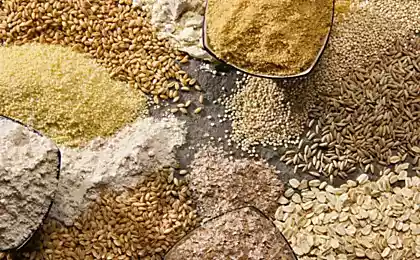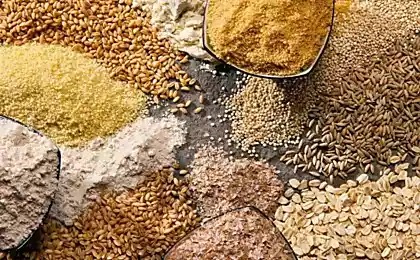474
Daikon and its beneficial properties

Daikon only superficially resembles our favorite radish, but the taste of this vegetable is completely different, very gentle and not sharp.
Often called Japanese daikon radish, but because it does not contain mustard oils that give the radish the same recognizable taste, it is rather similar to cabbage with its mild and pleasant taste. The Japanese love daikon radish, nutritional value of which is credited with magical effect on health. This root is included in the daily diet of the Japanese, and since we have potatoes, occupies in this country the bulk of the land, crops, daikon are huge compared with other vegetable crops. Japanese eat daikon raw or boiled, mariout in vinegar and served as a garnish to sashimi. Use daikon is especially revealed in combination with pork and chicken, and stew, garnished with daikon – is a favorite dish in every Japanese family. So why do the people of this country are so fond of daikon?
Useful properties of daikonDaikon is a product that is exactly like everyone likes to eat tasty and healthy. This vegetable is a true record for the most valuable content of vitamin C, and only 300 grams of vegetable will be able to fully cover the daily requirement of vitamin a for an adult.
Useful properties of daikon perfectly revealed in his exposure of the skin, nails, hair and teeth, as calcium this vows can give odds to any pharmacy. So, only 100 grams daikon contains 30 mg of calcium, which has beneficial effects on the body. And if we add that in Danone about the same potassium as bananas, it is safe the benefits of this root to take for granted to power all fans of healthy food.
Calorie daikon well very low, as with all root vegetables with a strong taste of type of radish, is per 100 grams of only 20 kcal. And when you consider that the average weight of one fruit of 350-500 grams, the useful properties of daikon in no way will affect the shape, this natural storehouse of vitamins is a favorite vegetable among fans of diets and proper nutrition.
Almost completely, 95% daikon consists of water, like all root vegetables. The benefits of this vegetable lies in the remaining 5% that are rich in b vitamins, especially folic acid and also vitamin a, vitamin PP and E, and rare Biotin, or vitamin H, which is responsible for the synthesis of protein and fat balance, and also for the exchange of sugars from the breakdown of glucokinase. This is why radish is useful for people with high weight, as they initially are at risk for diseases associated with the exchange of substance and diabetes. Just once a day is enough to eat a salad of daikon, and the rate of sugar in the blood is normal.
Useful properties of this vegetable are perfectly show itself in its application to cleanse the kidneys and liver. Bad water, poor nutrition and bad environment make our bodies a vessel for the accumulation of toxins. In order to cleanse the liver and kidneys of accumulated toxins and stones, enough in a day to eat 100 grams of daikon in a salad or in a stew form. The benefits of this vegetable are also invaluable to the overall condition of the body, it has antiseptic and anti-bacterial properties due to the content of solodunova acid, which has the ability to fight cancer.
And yet, daikon, like any vegetable, it has the basic components which have a beneficial effect on our intestines and have a cleansing effect on the body. This fiber is a natural dietary fiber, which in Japanese Danone contains 2 grams per 100 grams of raw product. Diet daikon is simply no substitute that can fully restore the reserves of nutrients and vitamins while possessing a delicate flavor, make meals more interesting. Daikon radish is a versatile vegetable that can be eaten raw, combined in all sorts of salads, stew, cook on the grill and wok and cook for a few as a garnish to meat and fish dishes. Use radish daikon is invaluable in the diet of those who sit on diets and also for vegetarians, because one serving of daikon per day provide the body with all necessary vitamins and microelements.
Harm daikondaikon About the benefits we are told, but any medicine will become the poison improper use and useful properties and harms of daikon are next and they are worth discussing separately.
Although daikon and does not contain mustard oils and acids that impart other vegetables of this type the recognizable taste and aroma, it is not recommended to feed those who suffer from diseases of the gastrointestinal tract. Nutritionists allow a day to eat no more than 100 grams daikon, as the advantage of it is large in fiber. But since this component is large quantities of difficult to digest, it is better to refrain from eating daikon contraindications to the use of designated doctors.
How useful daikon, and what harmful properties has this root, we are told, but with all the contraindications should not deny yourself the pleasure to try this Japanese vegetable and compare it with our radish.
Source: krugznaniy.ru/article/dajjokn-i-ego-poleznyye-svojjstva/























